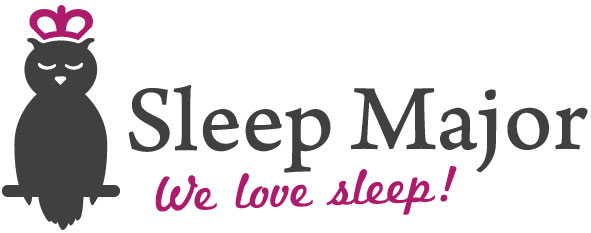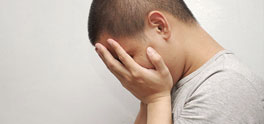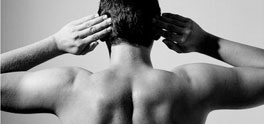Food and Sleep
Have you ever paid attention to how your body feels after you eat? Sometimes you are sleepy and lethargic after a meal, other times you get an instant energy burst. What we eat and drink (as well as when we do it) can make a big difference not only to our energy levels but also our digestion, our brain activity and how we release hormones all of which can also affect our sleep. It is definitely worth knowing a few of the basics of food and sleep if you are looking to improve the amount and quality of sleep you get.
Let’s start with the general relationships:
- Appetite & sleep are linked. If you are sleep deprived your body produces less leptin which is an appetite regulating hormone. Less leptin leads to an increased appetite. Often people who suffer from poor sleep therefore eat more and have a higher chance of becoming overweight.
- Weight & sleep are linked. Overweigh people often find it harder to sleep well. There is also an increases chance of Sleep Apnea in overweight people, which is turn can lead to poor sleep. Weight & sleep can easily develop into a vicious cycle.
- Whether we are sleepy or hungry, physiologically we can feel them same . Irritable, grumpy, distracted etc. This is most obvious in young children who are less skilled (or motivated) to mask their feelings! A tired or hungry child is the same ‘dangerous’ animal! So you might feel hungry but in fact you are tired. You head for the fridge for that late night snack when you should be making a beeline for the bed.
- Our natural circadian rhythms make us feel tired at both 2:00am and 2:00pm. This can be exacerbated by a big carbohydrate rich lunch leading to the well know post lunch sleepiness and sometime nap! This is normal.
So are there certain foods and drinks that can help or hurt our sleep? Yes indeed, there is a long list. Some are the usual suspects but some you may not be aware of.
The big ones:
Caffeine
The killer of good sleep, caffeine is in our coffee, our tea, our cola soft drinks and those popular energy drinks. It is also in chocolate!! 'Ahhg, not my beloved chocolate!’. Yes, unfortunately caffeine is all around us and often why we love caffeine loaded treats so much. Caffeine is actually a stimulant that make us feel less sleepy. But the key word is ‘feel’ as it can’t make you less tired. It can just mask the feelings for a while. But like most things, there is a payback with caffeine that comes later in the evening causing broken and disrupted sleep though the night. Some need to cut caffeine out of their systems completely to avoid the side affects of poor sleep. Others limit caffeine intake to one of two hits a day and avoid caffeine in the second half of the day as effects can persist for 6 hours. A quick word on energy drinks also - these combine caffeine, amino acids and lots and lots of sugar to really spike an energy and alertness burst. BUT beware, they will wreak havoc on your sleep if you over do it or drink them late in the day.
Alcohol
Alcohol is a wolf in sheeps clothing when it comes to sleep. It is true that alcohol can help you relax and it can also send you off to sleep. Sounds like a perfect sleep aid right? Wrong. Alcohol is well known to disrupt sleep during the night. Alcohol can also limit the amount of deep sleep you get meaning you can be in bed for hours but still wake up feeling tired. Not to mention the dehydrating affects of alcohol which can lead to headaches and frequent waking in the night to re-hydrate. Sound familiar? The lessons is the same as with Caffeine. Not too much and not too close to bed time. And try to match each alcoholic drink with a water to maintain hydration.
Tryptophan
There is an amino acid that can assist with sleep. It is called tryptophan. The more tryptophan available to your brain the sleepier you can feel. By combining proteins (which are important for the body to make tryptophan) with carbohydrates (which make tryptophan more available to your brain) we can help our brain get the sleepy messages we want when we are ready to sleep. So in practical terms you could try peanut butter toast, cheese & crackers or cereal with milk as snooze evoking snack .
Melatonin
Most people have heard of melatonin, the hormone that regulates sleep. We make melatonin in the brain with tryptophan (above). Melatonin is stored and secreted by the pineal gland at night to start and maintain sleep. There are melatonin supplements available that some people find assist with sleep however we would suggest you talk to your medical professional before ever considering adding a supplement to your intake.
Some of thes common foods as less well know but can also help with sleep:
Bananas
Bananas are a natural source of serotonin & melatonin and are also rich in magnesium which is a a muscle relaxant.
Warm milk
Milk contains tryptophan, the amino acid used to make melatonin and serotonin in the brain which in turn helps initiate and maintain sleep.
Chicken
Also rich in tryptophan.
Oats
Another source of melatonin plus rich in carbohydrates. Oats are also easy on the digestive system so are less likely to interrupt sleep.
Potatos
Potatoes are a carbohydrate. They help release serotonin.
Almonds
Almonds are high in tryptophan as well as magnesium, both helpful for sleep.
Chamomile tea
People have used chamomile tea for sleep for years to assist sleep. The trick is to make sure you brew it properly. Use a good amount of tea and properly brew it for 3 to 5 minutes. If brewing in a pot keep the lid on to keep oils in the water for the best relaxation effects.





